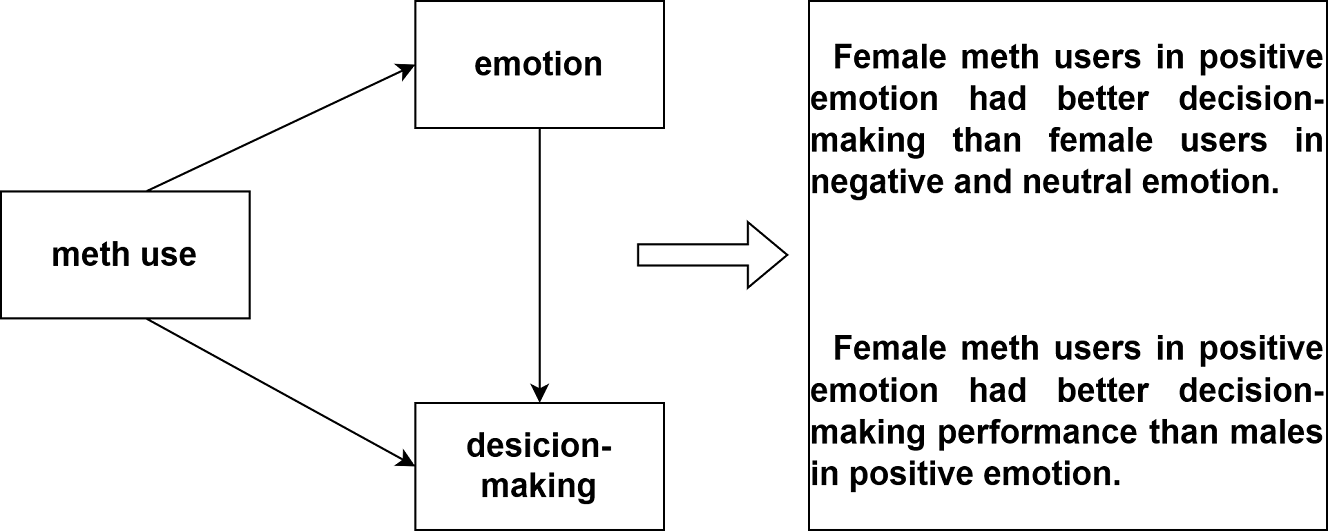 Open Access
Open Access
ARTICLE
Effects of Emotion on Decision-Making of Methamphetamine Users: Based on the Emotional Iowa Gambling Task
1 School of Psychology, Jiangxi Normal University, Nanchang, 330022, China
2 Jiangxi Key Laboratory of Psychology and Cognitive Science, Nanchang, 330022, China
3 Institute of Psychology, Jiangxi Normal University, Nanchang, 330022, China
4 Shenzhen Daydream Network Technology Co., Ltd., Shenzhen, 518000, China
* Corresponding Author: Xiaoqing Zeng. Email:
International Journal of Mental Health Promotion 2023, 25(11), 1229-1236. https://doi.org/10.32604/ijmhp.2023.029903
Received 14 March 2023; Accepted 20 June 2023; Issue published 08 December 2023
Abstract
The relapse of methamphetamine (meth) is associated with decision-making dysfunction. The present study aims to investigate the impact of different emotions on the decision-making behavior of meth users. We used 2 (gender: male, female) × 3 (emotion: positive, negative, neutral) × 5 (block: 1, 2, 3, 4, 5) mixed experiment design. The study involved 168 meth users who were divided into three groups: positive emotion, negative emotion and neutral emotion group, and tested by the emotional Iowa Gambling Task (IGT). The IGT performance of male users exhibited a decreasing trend from Block 1 to Block 3. Female meth users in positive emotion had the best performance in IGT than females in the other two groups. In positive emotion, the IGT performance of female meth users was significantly better than that of men. Female meth users in positive emotion had better decision-making than those in negative or neutral emotion. Female meth users in positive emotion had better decision-making performance than males in positive emotion. In negative and neutral emotions, there was no significant gender difference in decision-making.Graphic Abstract

Keywords
Cite This Article
 Copyright © 2023 The Author(s). Published by Tech Science Press.
Copyright © 2023 The Author(s). Published by Tech Science Press.This work is licensed under a Creative Commons Attribution 4.0 International License , which permits unrestricted use, distribution, and reproduction in any medium, provided the original work is properly cited.


 Submit a Paper
Submit a Paper Propose a Special lssue
Propose a Special lssue View Full Text
View Full Text Download PDF
Download PDF Downloads
Downloads
 Citation Tools
Citation Tools